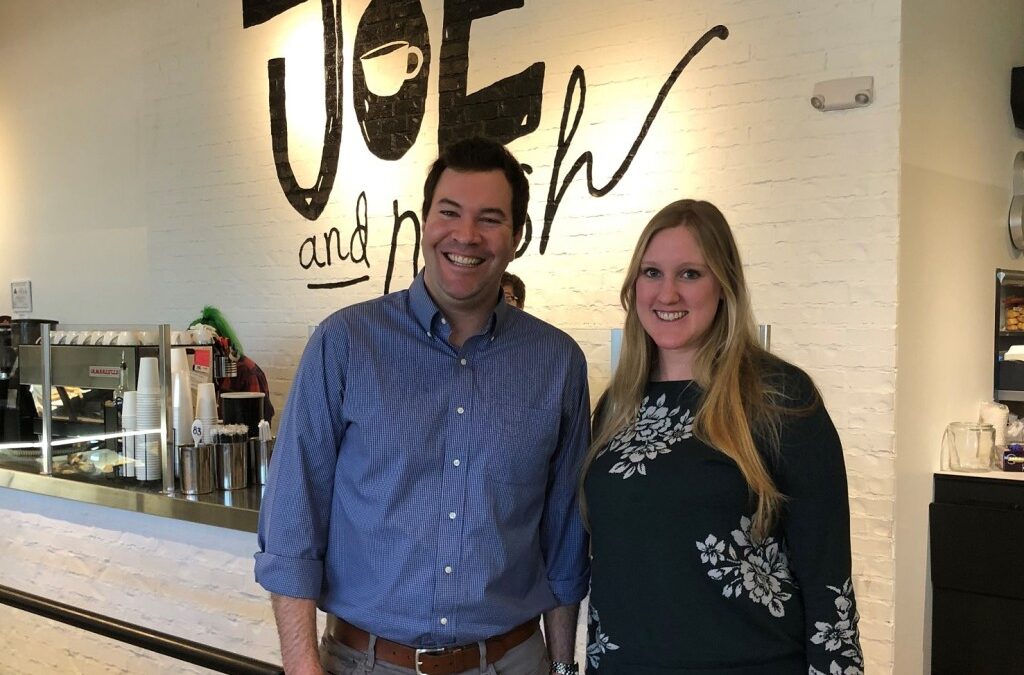
Blog
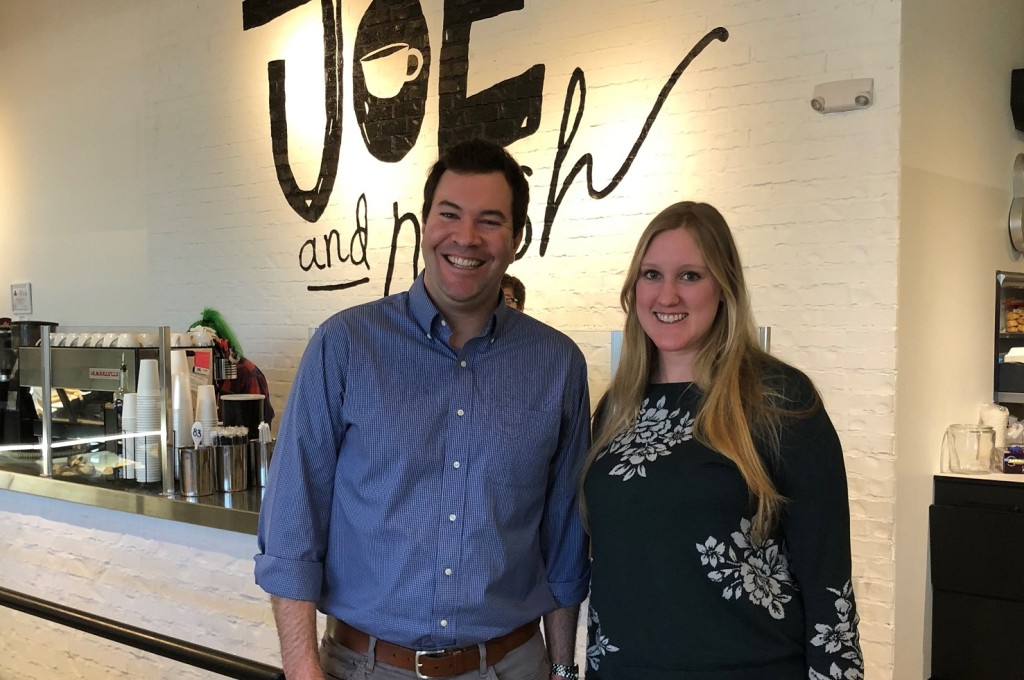
We recently sat down with Charlotte Business Journal’s (CBJ) newest reporter, Caroline Hudson, who covers banking, finance and technology. We wanted to get to know her a little better and understand how best to work with her. That is our job, right?!
Q: Hi, Caroline! Tell us a bit about yourself! How’s the new gig going? What attracted you to the CBJ?
A: I’m originally from Greensboro but I was in Greenville, N.C., for the past 2.5 years where I did more general assignment work with a daily publication writing about everything and anything. I’m enjoying my time at CBJ where now I can focus and home in on one particular beat.
My predecessor really set the stage for me, and I’m so glad she did. I’m walking into great relationships and have spent a lot of time my first few weeks cultivating those by networking with people and looking for potential sources. I generally do a story or two a day, but I’m so grateful that my bosses gave me that time to really get to know and understand the landscape.
One thing that attracted me to CBJ was the tenure of its reporters, mostly all being there for several years. Tenure really says a lot about an organization and, in particular, a newsroom.
Q: How do you think your time will be spent within your beats?
A: Definitely a focus on banking and financial services, but also touching fintech, technology and startups. There’s so much going on here!
Q: Any tips for PR professionals who would like to work with you?
A: Yes. Don’t be afraid to talk to me. A lot of people in the industry are trained to be on guard around reporters, which I understand and makes sense, but the vast majority of journalists aren’t out to get you or looking for dirt. So, if I ask you a simple question, I’m truly just looking for the answer to that question.
Another thing I’ve noticed is that I receive a lot of quotes that are heavily edited. Readers are smart and know what canned copy looks like. Keep in mind the reader wants to have a conversation (via a quote) without actually having to have a conversation.
Q: How is social media impacting your job?
A: Social is a very important part of what I do. I’m now focusing on building a base on Twitter — and other channels — but social media is a great source for story ideas. It’s such a relaxed and comfortable form of communication. Story pitches from PR professionals still usually come via email. We also break a lot of news on social since it’s in real time.
Q: What’s your mantra on photos?
A: We try to take our own since we have a great photographer on staff, but sometimes the schedule just doesn’t permit so it’s nice when companies do have something on hand, as a backup, to illustrate the story if need be.
A huge thanks to Caroline Hudson. She can be found on Twitter @CBJHudson or email at [email protected].
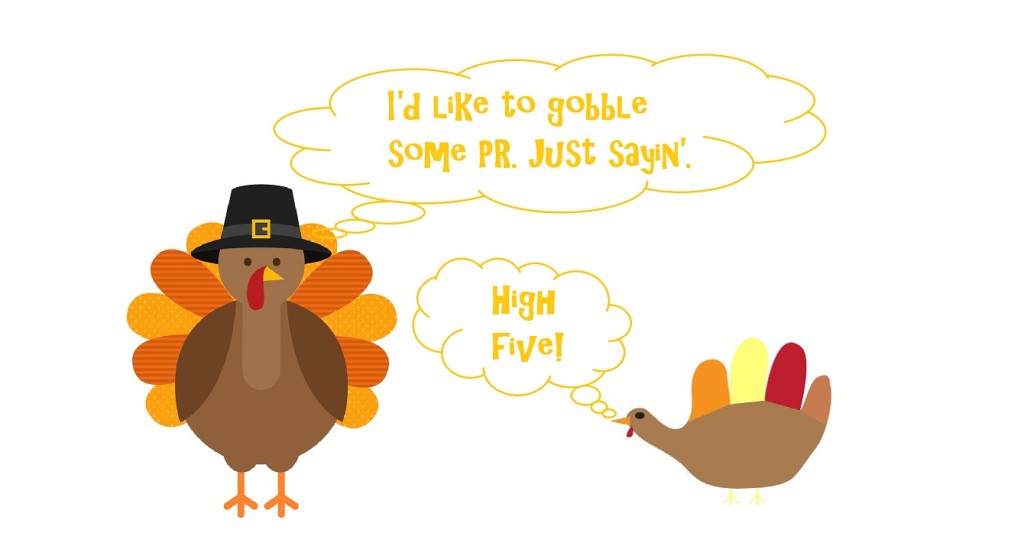
Blog

At Pivot PR we geek out over public relations (PR) and during this month of Thanksgiving, I am sharing why we are thankful for this stellar segment of marketing. And just so you don’t think we’re absolutely cuckoo, I’ve included some quotes from all-star business folks. They seem pretty thankful for PR too.
Thank-point #1: Lasting Memories
Which sticks out most in your mind? The store-bought pumpkin pie or the time spent with grandma every year making the pumpkin pie? Exactly. Along those same lines, how long does the 30- to 60-second paid advertising spot stick in your brain? Memories can’t be fabricated or paid for. They must be organic and that’s exactly what public relations is. Whether it’s media relations, community relations or influencer relations that’s behind the scenes of the article, event or social media post that creates a lasting memory with you, it’s all thanks to public relations.
As Barbara Corcoran, sharkette on The Shark Tank, stated at an Inc. conference, “If you’re not being quoted in the press, you’re losing market share by losing limelight.”
Thank-point #2: Dinner-Table Conversation
Do you sit around the Thanksgiving dinner table and discuss the banner ad that was served up to you 5x while you were reading an article, or do you talk about the article you saw maybe even just one time? (You might argue that you will poke fun at an ad but how many of you can remember WHICH product the ad is actually marketing?)
Forbes magazine wrote, “Data from influencer marketing platform MuseFind shows that 92% of consumers trust an influencer more than an advertisement or traditional celebrity endorsement.” An influencer could be a traditional journalist or perhaps a blogger or average person like you or me who has built an impressive following by covering a topic (e.g., food) as a hobby. Thing is, you believe them, don’t you?! Public relations efforts reach these folks and you pay more attention and believe what they say more than you do ads. Do you believe what paid ads (i.e., a brand) tell you?
And lastly, think about the buyer process with B2C or B2B customers: consumers are savvy these days and start their buying process by researching way before they contact you or step in your store, restaurant, etc. With public relations, you have blogs, media stories, social media content, reviews and more that consumers can consume – and that can tip the scales for them to decide on YOUR company! Not to mention the benefits in Google by way of constant content.
“Publicity is absolutely critical. A good PR story is infinitely more effective than a front page ad.” – Richard Branson
Thank-point #3: Big Things Come in Small Packages
With gift-buying holidays around the corner, let’s use that as our analogy here. Sure; you could spend thousands of dollars on a gift but will it have meaning? Will it be memorable? Will it make the recipient happy and feel loved? Or could you make something uber thoughtful from scratch or spend half the cost of the super expensive gift but tailor it to the recipient’s interests and have it be the gift that they never forget? Advertising costs can be through the roof and to point #2, will it even achieve your objectives? Don’t get me wrong; advertising has its place and is important to the paid-earned-owned triangle but you can’t rely ONLY on advertising (especially not on old-school, traditional advertising). On the other hand, consider a public relations tactic like blogging. According to InsideView, B2B businesses that blog achieve 67% more monthly leads than those that do not. Bottom line: PR is the big thing that comes with an extremely small price tag.
“If I was down to the last dollar of my marketing budget I’d spend it on PR!” – Bill Gates
We’re counting our blessings for more than just PR of course, including our family, friends, clients and fellow marketers and business owners in town. I’m also thankful you got to the end of this blog. Have a happy and safe Thanksgiving!
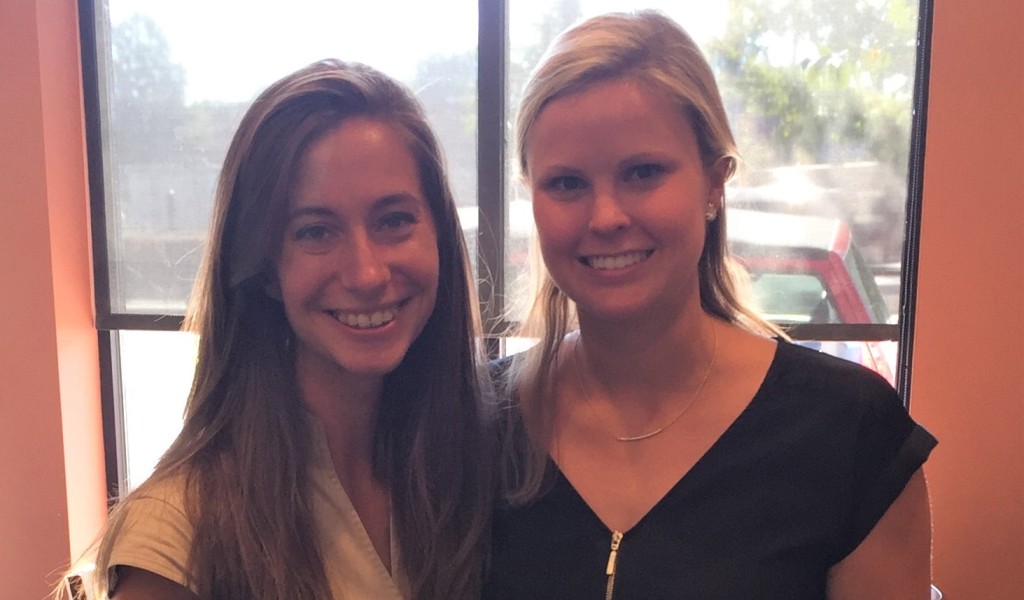
Blog

We recently caught up with Ashley Mahoney, multimedia journalist for The Charlotte Post. She shared with us her thoughts on what sets the Post apart, how she turned a family tragedy into a way to help others, and the importance of knowing who you are pitching to.
What is unique about The Charlotte Post? What sets you apart from other outlets in Charlotte?
We are unique because we are covering almost exclusively what is going on in Charlotte. There is a lot going on outside of Charlotte, but we aren’t the Washington Post or the Seattle Post; we are the Charlotte Post. For example, in sports, you are not going to find the scores from every NFL game that happened that weekend, but you will find stories about most of the area teams. We have also started covering futbol (soccer, Queen City Football Chronicle) more extensively, which is unique.
We like to provide news from the perspective of those who historically haven’t been acknowledged by many of the major outlets; we have been “The Voice of the Black Community Since 1906.”
How do you reach people outside of the weekly paper?
We have recently started two podcasts; Sports Charlotte is all about Charlotte sports and the other is more political, called The Stump. It’s been a great way to reach more people who want to be informed about what is going on, but may not pick up a paper or go to an event. For example, with our recent interviews with the mayoral candidates, people didn’t have to buy a ticket or show up at a specific time to hear from them. They could tune in any time, while they were driving, while they were walking their dog and trust us to ask the questions they wanted the answers to.
Are there any big projects you are currently working on?
Yes! My mom died of cancer in August. We started a cancer awareness series called Racing Against Cancer. We wanted to raise awareness about cancer, while providing support and information. We have discussed what cancer is, what the treatment options are, how it impacts you financially, different ways to deal with the news and more. It is targeted at not just the patient, but also all those people who are fighting alongside them and who need to be educated.
We have been able to disseminate the information in a way people can more easily digest on their own time, when they are not terrified sitting in a doctor’s office. I am not a doctor, I am not on the Fortune 500 list, I am just a journalist in Charlotte. However, I can write about these things and help make it easier for people going through it.
What is your best advice for PR firms looking to reach you?
The relationship is key. As cliché as that sounds, it really is about the individual and their knowledge of who we are at the Post. You can tell when someone sends you the exact same email that’s been sent to hundreds of other people. When the sender knows who we are, what our mission is, what I write about, it makes it a lot easier. After I develop that relationship, I also begin to go back to that person, call them up and ask what’s going on or if they have anything I would be interested in.
Any big don’ts that turn you off?
Some big don’ts would be people asking me to print a press release directly. Nope, cardinal sin number one. Also, asking to see a story before it goes to print or changing a direct quote when we have it recorded. This is what you’ve signed up for and you must trust us to do our jobs. Of course, if there is a true issue we will go back and fix it.
Thanks to Ashley for giving us a glimpse into her life at The Charlotte Post.
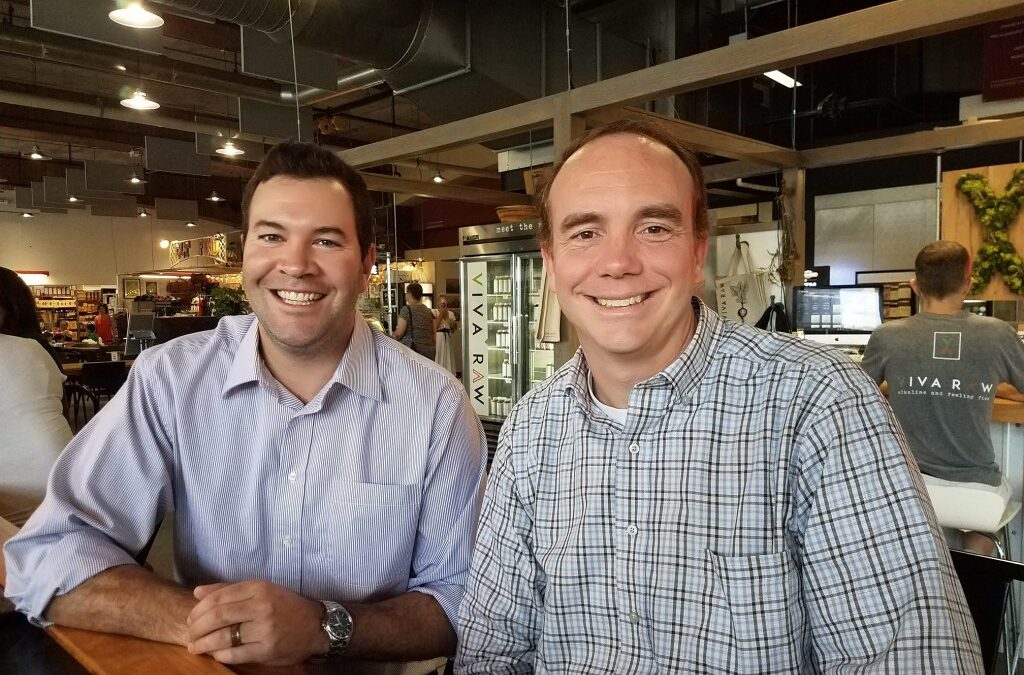
Blog
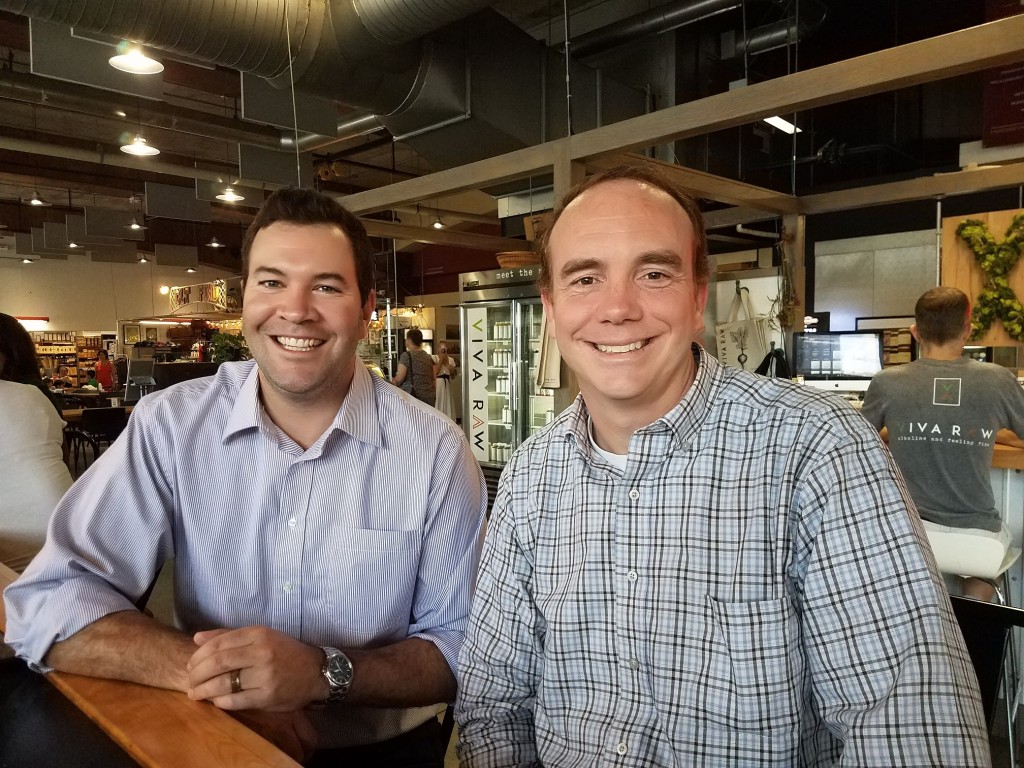
You may or you may not be familiar with Charlotte Center City Partners (CCCP). Because we are a public relations (PR) agency with clients in Uptown, it’s crucial for us to have relationships with people like Steven Cole, Director of Communications. So, we caught up with him recently to hear what he had to say about CCCP and best practices for PR and communications professionals.
For those who aren’t familiar, tell us a little about CCCP.
We are a 501(c)(4) that collaborates with and convenes organizations, government and non-profits to make center city and South End a more livable, workable and playable place. Creating one central hub of employment and culture is great for the city because the infrastructure is already in place. We perform functions ranging from economic development, strategic planning and quite a few events like the Thanksgiving Day Parade and Charlotte City festivals. We also manage the 7th Street Market and Charlotte B-cycle.
Is your background in communications?
I practiced PR in the army for 8 years. I spent time with the Honor Guard doing media relations in Afghanistan and working jointly with the international agency, Fleishman Hilliard. Some of my most recent work was in Los Angeles in the film and TV industry where I did some fun and interesting things like product placement and brand management with entertainment media.
What skills and experiences have you taken from the army and applied to your role at CCCP?
Time management, which I know most PR/marketing pros can appreciate! Also, something that’s more similar than I thought is the importance of organizational thinking — always relying on and reminding yourself of the organization’s mission to help keep you on track.
You have a newsletter, right? What’s its purpose and how can marketing folks work with you?
Absolutely; it’s weekly, and you can sign up through charlottecentercity.org or our Facebook page here. The format can differ slightly depending on what’s going on but we typically have a feature article written by someone on staff, then we’ll also repost articles from other sources highlighting different events and economic development interests. I encourage anyone within our constituency to send me relevant story ideas or events for consideration. You can email me at [email protected].
What’s your biggest PR pet peeve?
I guess I wouldn’t call it a pet peeve, but people often think all you need is a relationship with a journalist to get quality coverage. Relationships are great, but you must have quality content first.
Any advice for PR folks in Charlotte?
Build a diverse team of subject matter experts. That way, you’re not relying on one individual for all interviews and/or content.
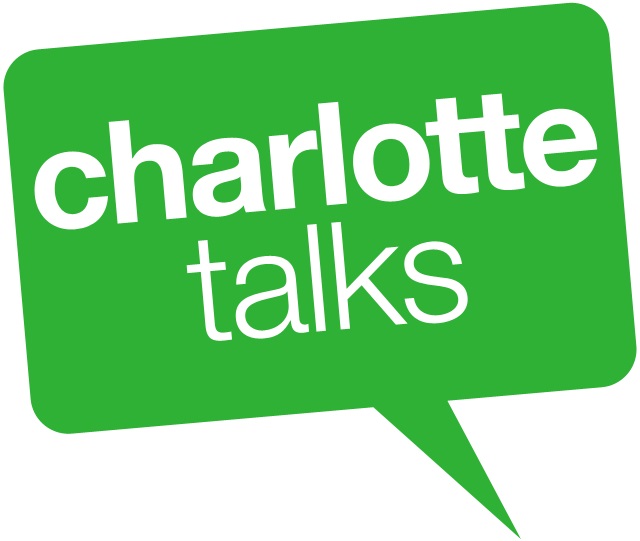
Blog

Since 1998, Charlotte Talks, WFAE 90.7’s daily signature talk show that’s hosted by Mike Collins, has provided our city with important community-focused discussions and stories. We recently sat down with Charlotte Talks’ Executive Producer, Wendy Herkey, to learn more about the show and how it’s adapted to the ever-changing radio industry over the years.
Tell us about your tenure with WFAE.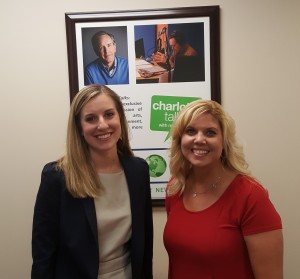
When I first started at WFAE I was in the membership department, but my background was in broadcasting and promotions. I was a communications major and English minor, so for me, my first job was a way to get my foot in the door. A production position opened up, and part of that job was to work with Charlotte Talks, helping out with some of the technical work and filling in for the producer. When the producer left, I began filling in as producer, and eventually got the job permanently. That was about 17 years ago. Now, our staff includes two other producers, Erin Keever and Chris Miller, as well as our production assistant, Jennifer Worsham.
How do you find guests for the show?
For the most part, we’re watching to see what’s happening in Charlotte and what issues are important to people in the listening area. We also receive information via email about
interesting people coming to town, or intriguing angles on topics to discuss. We cover politics, newsmakers, science topics, health, arts, business and movements in different industries. We try to be as timely as possible because our listeners want to be informed and up-to-date. We sometimes have panels of guests, and sometimes just one guest… and sometimes we switch guests out in each segment. We also have a rotating group of standing guests for our weekly news roundup.
Tell us more about the news roundup.
It’s our newest series on Charlotte Talks. We started it in February, and it’s now our top show of the week. A rotating panel of reporters come on every week, which includes our very own Tom Bullock, Eric Frazier from The Charlotte Observer and other reporters from local TV and newspaper publications. Because it’s our most popular show, we have started to occasionally take it on the road. We’ve been to The Observer so far, and have some ideas on future locations, but we are looking for different places around town where people can come out and watch.
How will WFAE continue to evolve as broadcast radio changes?
With all of the other options people have to get radio, it’s really important to keep everything local. They can’t get Charlotte Talks anywhere else besides WFAE (or at WFAE.org, or via our Charlotte Talks podcast). And, there’s generally a local connection in everything we do. A lot of listeners who are newcomers tell us that WFAE and Charlotte Talks is how they learn about their city. We also use different ways to reach our listeners. Many listeners use social media and apps. We have a WFAE app and many people find us that way. Charlotte Talks has a large podcast audience that gets the show every week.
How would a pitch stand out in your inbox?
Because of our deadline structure, there are some days where I don’t have much time to look at pitches. Because of the amount of email we get, it can take a while for me to consider a topic, so if it’s a timely pitch, I definitely don’t mind if people follow up with me. They can get to all three of us through our show email. The pitch needs to fit the mission of our show, and we are looking for what’s interesting for our listeners. There are some people who come to us with someone in mind that they would like to push forward, but they add other panelists to the pitch to make it broader. That gives us more to dig into. We have 48 minutes we have to fill. It hurts the idea of getting on the show if we don’t have a deep, relevant story.
How far in advance do you plan your shows?
There’s really no one answer to that! The news roundup happens every Friday, so we have Fridays taken care of. Some of the shows we schedule a month out because we know an expert or author is coming to Charlotte. Sometimes it’s a week or a few days ahead of time, depending on what the show is and whether we have openings.
Anything else you’d like to share?
I hope your readers listen! Whenever they tell us they’ve tuned into our show and thought it was helpful to them, that’s the biggest compliment we can get.
Thank you Wendy Herkey for sitting down with us and sharing more about Charlotte Talks! You may reach Wendy and her team by emailing [email protected].







